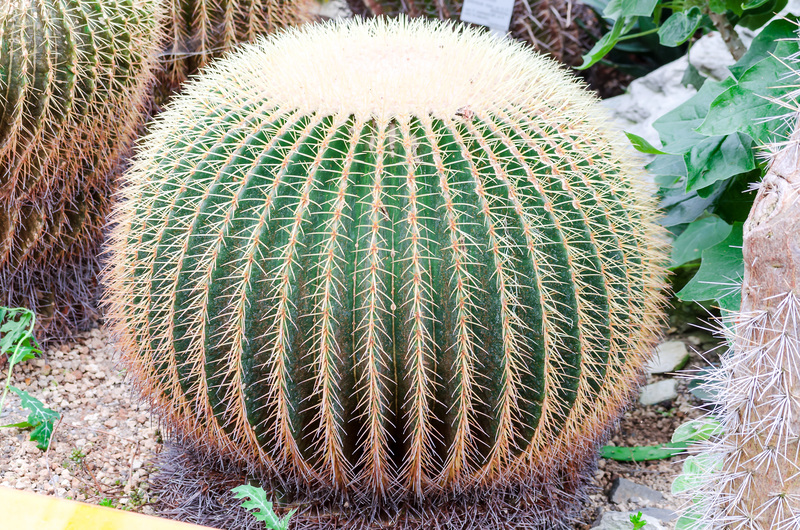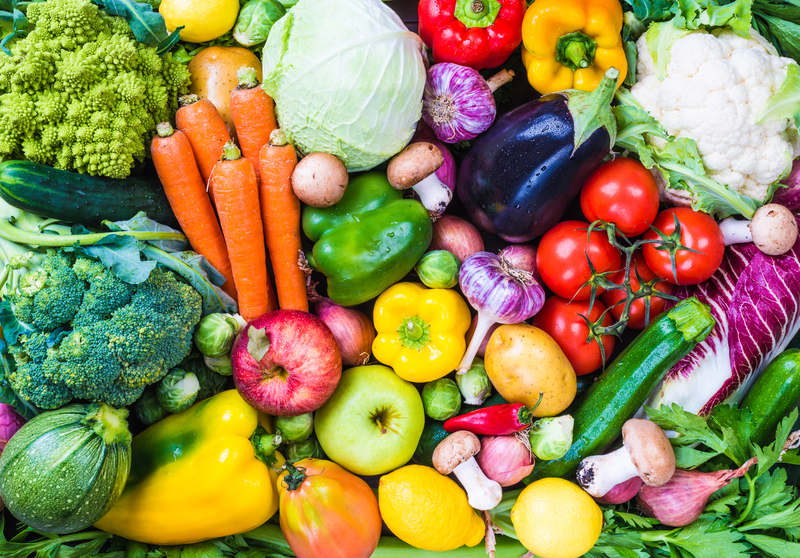Flourish With Ease: 9 Essential Tips for Novice Gardeners
Posted on 07/09/2025
Flourish With Ease: 9 Essential Tips for Novice Gardeners
Are you eager to cultivate your green thumb but not sure where to begin? Novice gardeners can often feel overwhelmed by the vast world of horticulture. Thankfully, growing a beautiful, thriving garden isn't reserved for seasoned experts. With the right guidance and insight, you can flourish with ease and enjoy a rewarding gardening journey from day one. Follow these nine essential tips for beginner gardeners to ensure your plants--and your confidence--blossom.
1. Start Small and Simple
It's tempting to transform your entire backyard into a lush paradise overnight, but for new gardeners, starting small is the wisest path. Choose a manageable plot or a few containers to begin your journey. This prevents feelings of being overwhelmed, minimizes initial investment, and allows for easier maintenance and learning.
- Select a space with good sunlight and proper drainage.
- Try raised beds or a small herb garden for your first endeavor.
- Gradually expand your garden as your skills and confidence grow.
Why Small Gardens Are Ideal for Beginners
A small garden provides a controlled environment to experiment and learn. You can give individual plants more attention, observe their progress, and make adjustments easily. With fewer variables to manage, mistakes are less costly and more educational, helping you flourish with ease early on.

2. Choose Easy-to-Grow Plants
Some plants are friendlier to beginners than others. When starting out, select low-maintenance, hardy varieties that suit your climate and available sunlight.
- Herbs: Basil, mint, parsley, and chives are simple to grow indoors or outdoors.
- Flowers: Marigolds, sunflowers, and zinnias offer dazzling color and resilience.
- Vegetables: Lettuce, radishes, green beans, and tomatoes thrive with minimal effort.
Consult your local garden center or agricultural extension office to learn which plants are best-suited for your region. Choosing wisely will set the stage for a bountiful, satisfying start.
3. Understand Your Local Climate and Soil
Your garden's success depends largely on matching plants with the environment. Take time to study your hardiness zone, recognize the frost dates, and assess your unique soil composition.
- Check the USDA Plant Hardiness Zone Map to determine suitable plant varieties.
- Test your soil's pH and nutrient levels with inexpensive kits.
- Amend your soil with compost or organic matter if needed for optimal plant health.
Armed with knowledge of local conditions, you'll be empowered to flourish as a gardener by giving your plants precisely what they need.
4. Prioritize Sunlight and Water Requirements
Plants have specific needs regarding sunlight exposure and watering. Misjudging these essentials can spell disaster for even the most robust species.
- Ensure your chosen spot gets at least 6 hours of sunlight for most vegetables and flowers.
- Group plants with similar water requirements together for convenient care.
- Use mulch to regulate soil moisture, suppress weeds, and retain nutrients.
The Balance of Watering
Overwatering is a common pitfall for novice gardeners. Check soil moisture with your finger--if the top inch is dry, it's time to water. Water deeply but less frequently to encourage strong root growth, and always water at the base rather than overhead to prevent disease.
5. Invest in High-Quality Tools and Supplies
You don't need a shed full of equipment to get started. However, a few well-chosen tools will make your gardening tasks easier and more enjoyable.
- A sturdy trowel and hand fork for planting and soil preparation.
- Pruning shears for keeping your plants tidy and healthy.
- Durable gloves to protect your hands from thorns and dirt.
- Watering can or a lightweight garden hose for easy irrigation.
Focus on quality over quantity--reliable, comfortable tools last longer and simplify your gardening journey.
6. Learn and Practice Proper Planting Techniques
Mastering the art of planting is crucial for new gardeners. Carefully follow the instructions on seed packets or plant labels, paying particular attention to:
- Planting depth and spacing for healthy growth and airflow.
- Gently loosening roots when transplanting to encourage establishment.
- Watering immediately after planting to eliminate air pockets and hydrate roots.
Observing these steps helps ensure your plants settle well and minimizes early challenges.
7. Feed and Mulch for Lasting Health
Just as people need balanced nutrition, so do gardens grown by beginners. Fertilizing and mulching can support robust, lush plant growth.
- Fertilize sparingly with organic options like compost, worm castings, or natural blends suited for your crops.
- Apply a layer of organic mulch (wood chips, straw, or shredded leaves) to conserve moisture and regulate soil temperature.
- Regularly check for yellow leaves or slow growth as signs of nutrient deficiency.
With these foundational methods, you'll see your garden flourish with ease in no time!
8. Cultivate Patience and Persistence
Gardening is a journey, not a race. Even skilled gardeners experience setbacks and surprises. Plants may take weeks to germinate, grow, and blossom.
- Resist the urge to intervene too often--letting nature take its course can prevent more harm than good.
- Record your observations in a garden journal to learn from each season.
- Celebrate every milestone and learn from mistakes, knowing that every setback is a lesson in disguise.
With these values in mind, you'll develop the resilience and wisdom that all experienced gardeners cherish.
9. Engage with the Gardening Community
No successful gardener grows alone! Connect with local experts, neighbors, and online groups for inspiration, troubleshooting, and joy.
- Join a community garden or gardening club to share tips and resources.
- Attend workshops or virtual seminars to expand your knowledge.
- Follow gardening bloggers and forums to stay current and motivated.
Interacting with others not only builds your confidence but also deepens your appreciation of the gardening world. Learning is endless, and the journey is richer together.
Bonus: Avoid Overwhelm--Enjoy the Process!
Above all, remember that gardening should be relaxing and rewarding. Don't strive for perfection--every lush border and juicy tomato comes with its share of trial and error. When you embrace the process, you'll find it easier to flourish with ease, turning even your mistakes into stepping stones.

Frequently Asked Questions for Novice Gardeners
How do I choose the best spot for my first garden?
Select an area with at least 6 hours of direct sunlight, good drainage, and easy access to water. Avoid places that collect stagnant water or are prone to flooding.
How often should new gardeners water their plants?
It depends on the plant's needs and the weather. Generally, water when the top inch of soil is dry. Early morning is the best time, as it reduces evaporation and fungal diseases.
What are the easiest vegetables for beginners to grow?
Start with leafy greens (like lettuce), radishes, beans, and tomatoes. These are forgiving and quick to harvest, making them ideal for those looking to flourish as a new gardener.
What if I make mistakes?
Mistakes are a natural part of gardening. Each season will teach you something new. Be patient with yourself, and always be willing to learn and adapt.
Conclusion: Your Green Thumb Awaits
With these nine essential tips for novice gardeners, you're well on your way to a vibrant, thriving garden. Remember, every expert was once a beginner. By starting small, choosing the right plants, understanding your environment, and connecting with others, you'll soon flourish with ease--reaping both harvests and happiness from your newfound passion. Happy gardening!
Latest Posts
Gusty Garden? Practical Ways to Reduce Wind Impact
Crucial Gardening Equipment for Outdoor Enthusiasts
Vertical Gardens: Green Wall Wonders
Steps to Develop a Stimulating Garden for Young Minds
Revitalize Your Garden with These 3 Powerful Weed Control Tips

